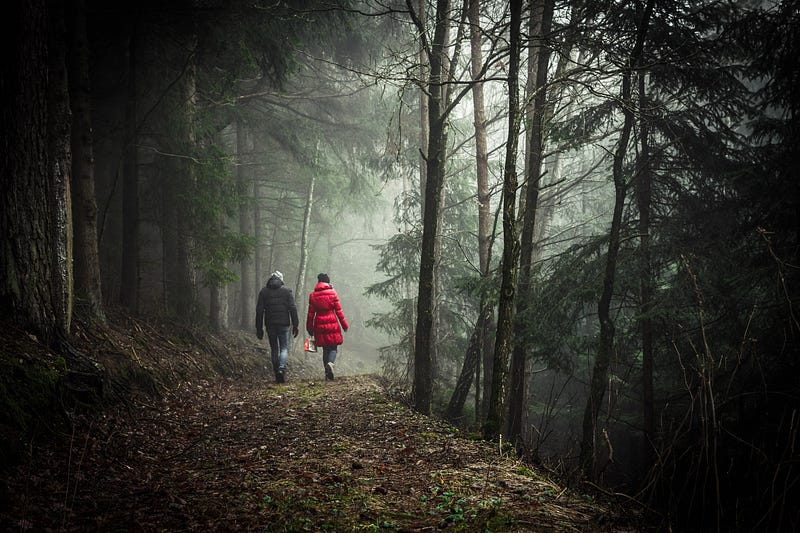# Exploring the Intersection of Religion, Politics, and Our World
Written on
Chapter 1: Understanding Our Reality
Do you ever question if we truly inhabit a tangible reality?

Politics and Human Nature
When confronted with injustice, our immediate reaction is often outrage. However, after venting within our circles of like-minded individuals, we tend to move on swiftly. The political landscape today has left us deeply divided, and our initial fervor for causes can wane rapidly. Human energy is finite; soon enough, we find ourselves distracted by daily responsibilities, from paying bills to managing our personal well-being.
While it's crucial to advocate for equality and justice, we are, after all, only human and can feel exhausted. Yet, the world isn't solely composed of organic beings. Corporations and profit-driven entities, though made up of individuals, represent something larger that thrives on the effort of even the most reluctant workers. Those who seek to dominate can turn into mere entities for self-aggrandizement, while the living beings fueling these machines are interconnected life forms that experience fatigue. Thus, we grow weary of both being owned and owning possessions.
Regardless of our belief systems or political affiliations, we all grapple with the reality of being human, existing in both an abstract realm of constructed ideas and a technological world governed by entities greater than ourselves. The abstract nature of our world is evident as we navigate constructed concepts like money, borders, and hierarchies, alongside countless faiths. Conversely, the artificial aspect comes from the myriad machines that collect our data, generating advertisements to keep us consuming.
Rapture and the End Times
Recently, a dear friend suggested that my partner and I should not concern ourselves with financial burdens, health issues, or the looming threat of climate change. Instead, we should prepare for the Rapture—the belief that salvation will occur during a chaotic period on Earth, where only those with specific faiths will ascend to eternal life, while others face catastrophic trials.
Having been raised in Christianity, this concept troubled me. Jesus often reminds us to observe the birds and flowers. I cannot accept a Rapture that excludes them, nor can I envision a kingdom that exists beyond our world. For many Christians, the kingdom of God resides within, not in some distant celestial realm. When we envision heaven as a paradise far removed from our own, we risk creating a hell out of our present reality.
Here and Now on Our Earth
Lao Tzu, Jesus, Buddha, and other spiritual leaders throughout history encourage kindness toward one another. Lao Tzu illustrates this by stating that gentleness is more powerful than force. He demonstrates how water can shape mountains over time. While we can be harsh and judgmental, true strength comes from recognizing our connection to all beings, allowing us to influence lasting change.
Buddha teaches that all living beings possess Buddha nature and have the potential to reach enlightenment. Modern pagan beliefs emphasize the interconnectedness of nature and spirituality. My field, ecopsychology, reveals through scientific inquiry that our world is indeed real. Unless we are in an extensive illusion, our senses confirm that we are part of a grand interconnected web, sharing the same star chemistry and dependent on each other for survival.
Even if our existence were an illusion, the sensations and emotions we experience feel genuine enough for most of us. It's clear that the Earth is worth preserving, and the ethereal ideals of angels and harps may lack the evidence necessary to justify neglecting our tangible home.
Nevertheless, we must confront our fatigue. We all need to seek spiritual sustenance to cultivate resilience and strength. Ironically, for some atheists and agnostics, this sustenance comes in the form of truth and knowledge. As depicted in the film Contact, maintaining faith in these ideals is essential to satisfy our innate curiosity and thirst for wonder.
Chapter 2: The Role of Religion in Society
The first video titled "Religion, Politics, and Intolerance" explores the complex relationship between belief systems and societal challenges, offering insights into how these elements interact within contemporary contexts.
The second video, "Ben Shapiro vs Alex O'Connor • Is Religion Good for Society?", presents a debate on the impact of religion on modern society, examining both positive and negative consequences.